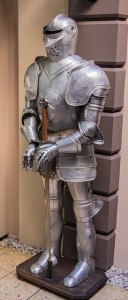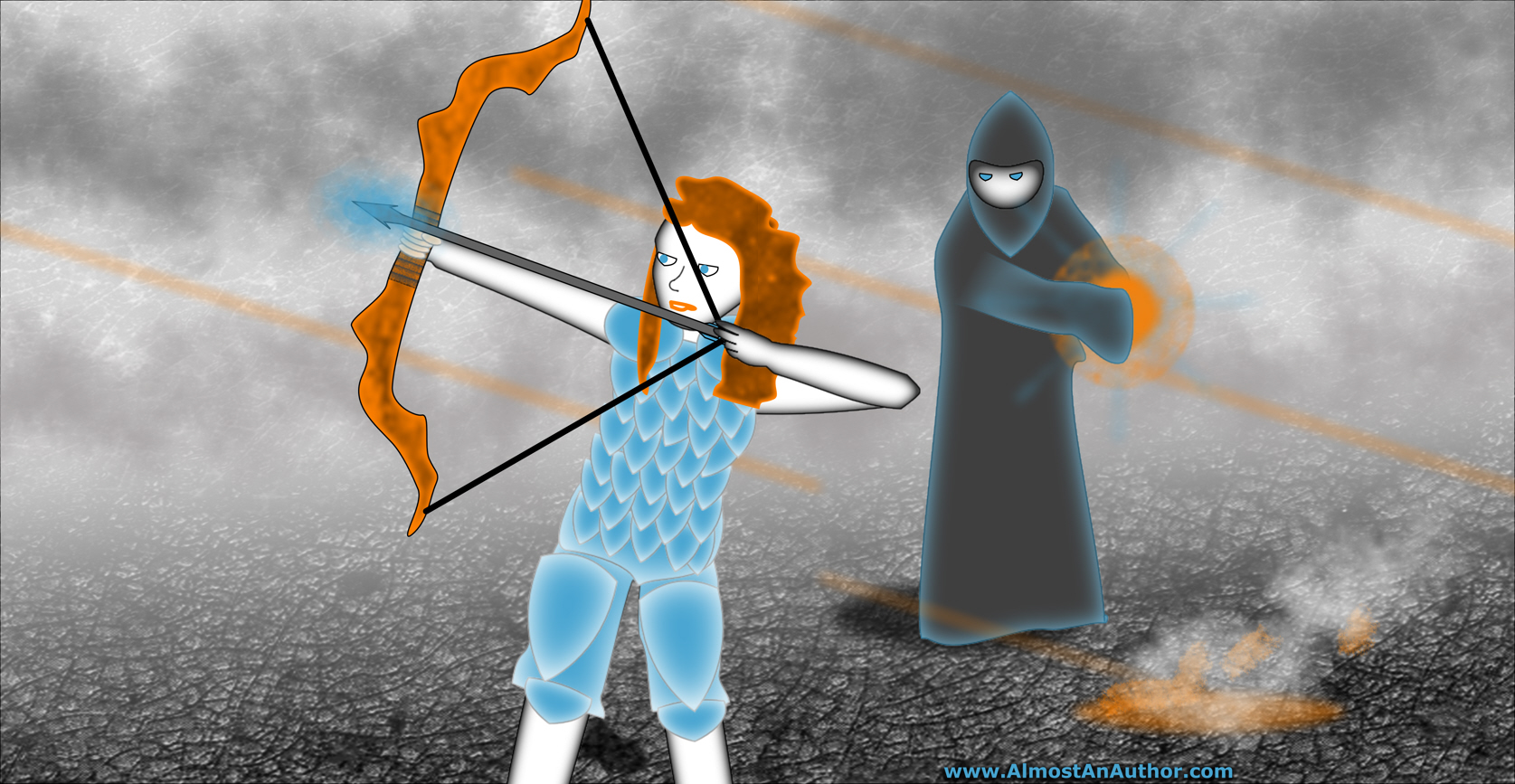Military technology is an important consideration when writing speculative fiction, but sci-fi authors aren’t the only ones who need to think about it. In order to discuss military technology, we should start with a working definition. In this article, military tech is any equipment or magic that assists a people in exerting or resisting influence. This includes defensive armaments from a buckler to the Enterprise’s shields, as well as offensive weapons like lightning spells or bio-engineered mind-altering spores.
Low-fantasy Military Tech
 If you’re writing a novel in a low-fantasy setting (that is, a quasi-medieval setting which closely parallels earth’s own history) you must be aware of the significant military advances through the years. Here are some timeline links: (wikipedia, britannica). Historically, significant pieces of military technology have altered the landscape of warfare, and failing to account for these inventions can make your novel seem anachronistic. For example, if you want to write about knights and such, you have to figure out when your novel takes place relative to the invention of the English longbow. Such a weapon allowed a commoner to easily kill a noble knight from hundreds of yards away. That doesn’t mean that knights and longbows didn’t exist simultaneously, but the usefulness of expensive noble warriors dwindled as ranged weapons proved more effective.
If you’re writing a novel in a low-fantasy setting (that is, a quasi-medieval setting which closely parallels earth’s own history) you must be aware of the significant military advances through the years. Here are some timeline links: (wikipedia, britannica). Historically, significant pieces of military technology have altered the landscape of warfare, and failing to account for these inventions can make your novel seem anachronistic. For example, if you want to write about knights and such, you have to figure out when your novel takes place relative to the invention of the English longbow. Such a weapon allowed a commoner to easily kill a noble knight from hundreds of yards away. That doesn’t mean that knights and longbows didn’t exist simultaneously, but the usefulness of expensive noble warriors dwindled as ranged weapons proved more effective.
I just finished reading R.A. Salvatore’s The Highwayman, and was intrigued by the fact that one culture lived in a bronze age of sorts while another had rolled steel technology akin to Japanese sword-makers. Calling attention to little details like this can differentiate the relative degree of advancement between cultures, and can really help that world persist in your reader’s memory.
High-fantasy Military Tech
Ancestral magic swords, frost arrows, and fireball spells all fit into the realm of high-fantasy. The military technology in this kind of realm is largely defined by magic, whether directly through wizardly incantations or indirectly through some enchanted artifact. You have a lot more freedom in this kind of fantasy setting, but to make the world believable, you’ll need to consider unintended consequences and alternative purposes.
As a general rule, any new bit of domestic technology, no matter how benign, will eventually be repurposed to for military uses. Maybe in your world, benevolent clerics are able to create water at will. If that’s true, undoubtedly some ruler has considered getting a bunch of these holy men together to flood out his rival’s castle. If magicians can easily enchant things with levitation, then a high fantasy B-52 bomber is probably a pipe-dream of the local wizard enclave. If your hero has a helmet that allows underwater breathing, certainly some sorcerer has considered making a fantastic submarine with the same imbuement. These are just some examples. When dealing with something new and fantastic, it might be a good idea to run it by that creepy friend of yours and see if he can find some nefarious military purpose for it. If you lack creepy friends, leave a comment below and I’ll see what I can do.
Sci-Fantasy Military Tech
 A subset of science fiction is Science-Fantasy, a blend of Sci-Fi and Fantasy. You might wonder what kind of works fall into this category, but you’re probably more familiar with one than you realize. Star Wars includes futuristic military weapons, but also futuristic military sorcerers. Don’t believe me? One of Vader’s advisors even called him a sorcerer. Sure, he got force-choked for the remark, but still.
A subset of science fiction is Science-Fantasy, a blend of Sci-Fi and Fantasy. You might wonder what kind of works fall into this category, but you’re probably more familiar with one than you realize. Star Wars includes futuristic military weapons, but also futuristic military sorcerers. Don’t believe me? One of Vader’s advisors even called him a sorcerer. Sure, he got force-choked for the remark, but still.
More commonly, you see wizardry in sci-fi called “psionics” or some similar term (e.g. Mass Effect’s “biotics”). And just like in standard fantasy novels, anyone with a bit of magic (or psionics) becomes very valuable to the military. As a writer, you’ll have to determine how these magic-users fit into your world’s sci-fi military. Are they integrated into combat units? Put into separate special forces groups? Regardless, you must consider a combat application, because in a world with enough conflict, eventually someone will.
That’s all for now. Next month we’ll look at sci-fi military tech!







1 Comment
This is a really helpful post. Thank you. It helped me think about a few things for some of my stories that I hadn’t considered. If you have someone with a powerful technology or magic some person in power or the military will probably want it. Definitely has helped me think about a few things about power balance and technology.